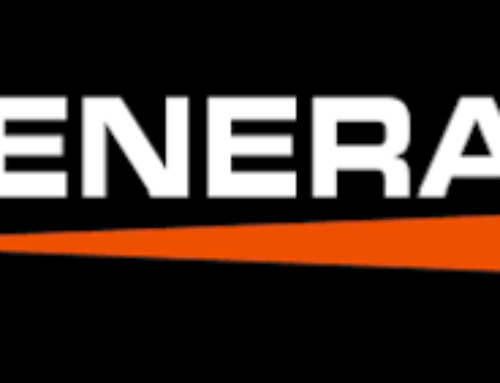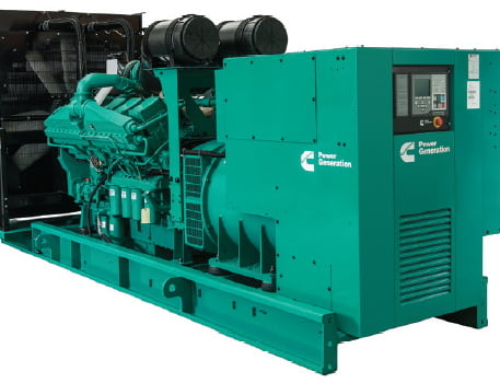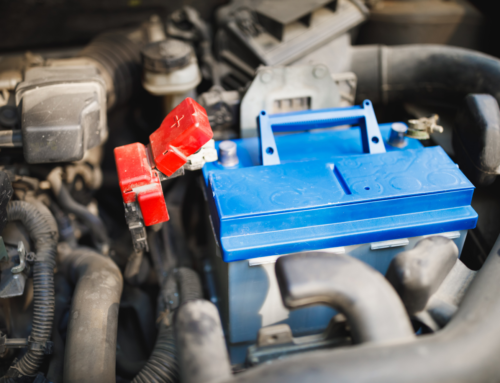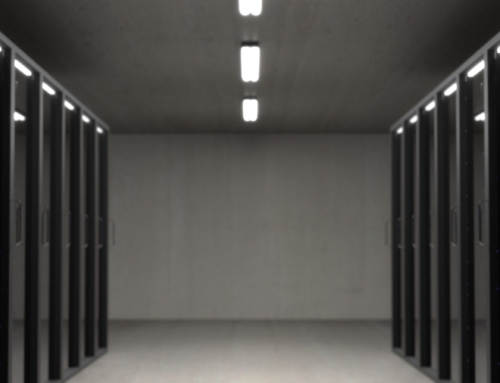Commercial generators provide power to facilities, large-scale operations, and businesses. They can be used as a primary or backup power source to ensure that all essential systems are operational during sudden power outages in industries or areas without a power grid.
In this blog, we will discuss the purpose of a commercial generator, why businesses should install one, and how commercial generators work.
What is the purpose of a commercial generator?
Commercial generators are used to avoid disruptions and potential business losses that are related to power outages in industries and commercial buildings.
Below are the basics of a commercial generator:
- The commercial generator is designed to provide higher power outputs than regular residential generators so that it can handle the power demands of systems and equipment connected to the generator.
- They are built using strong components such as stronger metals, and large and studier engines for long-term performance and reliability.
- Some common types of commercial generators include diesel generators and natural gas generators.
- Commercial generators are commonly used in business buildings, banks, hospitals, data centers, hospitals, and factories.
- Commercial generators are also used as backup power sources as they automatically keep the business running during an outage but in some areas, without a utility grid, they are also used as a primary power source.
A commercial generator is important for businesses as they can seamlessly operate the business, especially in hospitals and data centers. They ensure continuous operation, safety, comfort, and productivity and also lower insurance premiums.
Why should businesses install a commercial generator?
Below are the reasons why businesses should install a commercial generator:
Safety and Compliance
- Commercial business buildings require power backup systems especially when they use emergency systems like hospitals.
- Commercial generators make sure they are compliant with building codes to safeguard businesses and users during unexpected power outages.
- They also provide energy to critical systems including security systems, emergency lighting, and life-saving equipment.
Improve business productivity
- Commercial generators allow businesses to operate during outages by providing backup power to avoid productivity impact and revenue losses.
- They keep essential systems running like HVAC, refrigerators, and other automated equipment.
- They provide a productive and comfortable work environment for all employees and business users.
Provide reputation
- Generators make sure they protect businesses from financial losses like downtime and spoiled goods.
- They improve customer satisfaction, build reputation, and maintain a reliable image even during adverse conditions.
Insurance Benefits:
- Commercial generators may help to reduce insurance premiums by avoiding power-related issues.
- Many insurance companies will recognize the value of reliable backup power sources for businesses.
Meet business requirements
- Some of the businesses like restaurants, hotels, manufacturing industries, and grocery stores rely on refrigeration and other important systems will benefit from backup power sources.
- Assisted living centers, businesses that serve vulnerable populations, and medical facilities need powerful and reliable backup power sources for safety and well-being.
How does a commercial generator work
Commercial generators are also called standby generators or industrial generators. They work by converting mechanical energy into electrical energy through electromagnetic induction. It has a rotating part called an alternator that spins within the magnetic fields that induce electric current. The commercial generator automatically switches back to the power grid when the power supply is restored.
Below are the parts of the commercial generator and their working:
Fuel and Engine
Commercial generators work using fuels including diesel or natural gas for the working of an engine. The engine produces mechanical energy that operates the alternator.
Alternator
The alternator is a core component or generator head that converts mechanical energy into electrical energy.
Automatic Transfer Switch or ATS
ATS will automatically switch the load to the generator when the power supply from the main power grid is interrupted. When power is restored, it switches back to the grid.
Power delivery
The output of the generator is matched with the voltage and frequency of the electrical system to ensure continuous power supply to essential equipment.
Lubrication and cooling systems
Commercial generators have lubrication and cooling systems by default to make sure they provide long-term operation especially when operating heavy-duty applications.
If you’re looking to install a commercial generator in your industrial space, contact our expert today.
CS Diesel Generators provide all kinds of new and used indoor and outdoor generators and their parts for sale. We also buy your used power generators at competitive pricing. Contact our expert today to schedule an onsite generator installation at your workplace.
FAQS
What is a commercial generator?
Commercial generators provide power to facilities, large-scale operations, and businesses. They can be used as a primary or backup power source to ensure that all essential systems are operational during sudden power outages in industries or areas without a power grid.
What is the purpose of a commercial generator?
Commercial generators are used to avoid disruptions and potential business losses that are related to power outages in industries and commercial buildings.




![How to Leverage Remote Monitoring for Your Industrial Generator?[2024 guide]](https://csdieselgenerators.com/wp-content/uploads/2024/03/Remote-Monitoring-500x383.png)
